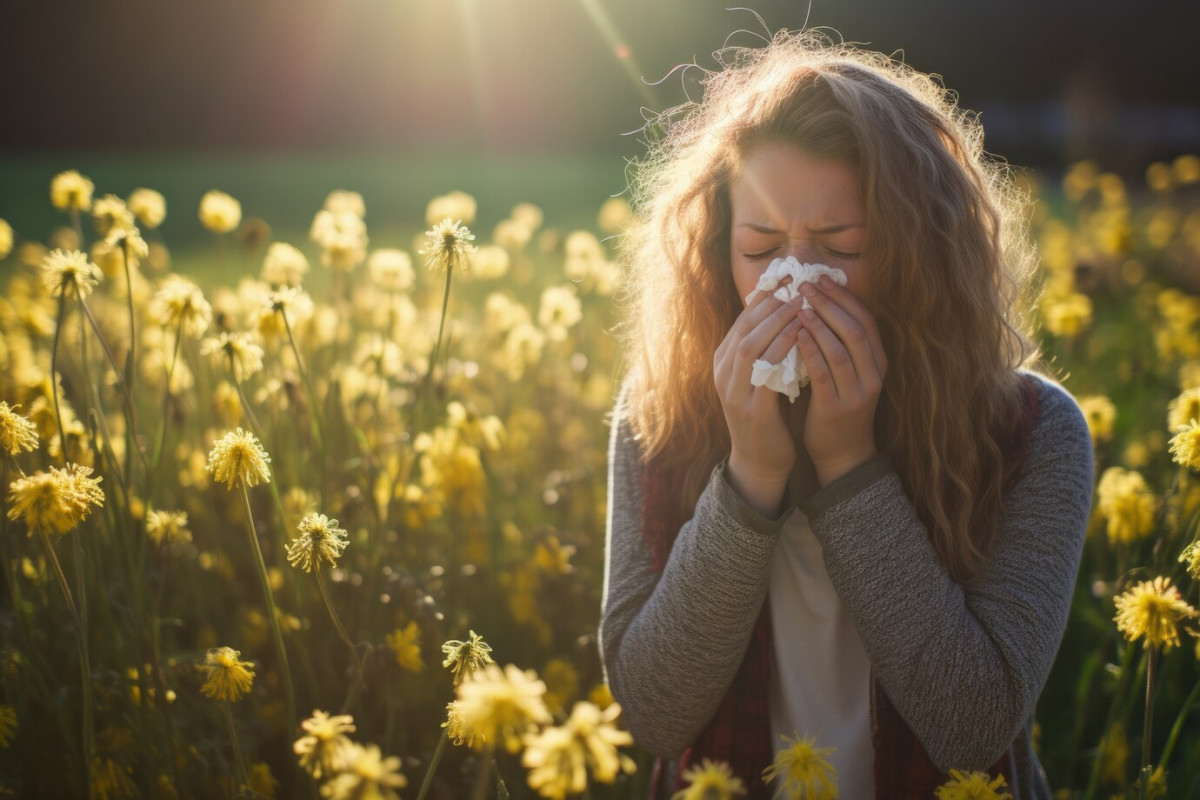Understanding Seasonal Allergens: Essential Information for You
Florence, United States - April 11, 2024 / Allergy Asthma & Sinus Center /
Seasonal allergies, also known as hay fever or allergic rhinitis, affect millions of people worldwide. As the seasons change, so do the allergens in the environment, triggering allergic reactions in susceptible individuals. Understanding the common triggers and learning how to manage symptoms is crucial for those affected by seasonal allergies.
Introduction to Seasonal Allergies
Understanding Allergies
Allergies occur when the body's immune system reacts to foreign substances, known as allergens, that are typically harmless to others. In the case of seasonal allergies, these allergens are often airborne particles such as pollen, mold spores, dust mites, and pet dander.
Importance of Knowing Seasonal Allergens
Identifying the specific allergens responsible for seasonal allergies is essential for effective management. By knowing which allergens to avoid or minimize exposure to, individuals can better control their symptoms and improve their quality of life.
Common Seasonal Allergens
Pollens
Pollen from trees, grasses, and weeds is one of the most common triggers for seasonal allergies. As plants release pollen into the air during their blooming seasons, allergic individuals may experience symptoms such as sneezing, runny nose, and itchy eyes.
Mold
Mold spores thrive in damp and humid environments, making them prevalent during the spring and fall months. Indoor mold growth can exacerbate allergy symptoms, leading to respiratory issues and skin irritation in sensitive individuals.
Dust Mites
Dust mites are microscopic insects that feed on dead skin cells found in household dust. While they are present year-round, dust mite populations tend to peak during the warmer months. Allergic reactions to dust mites can cause sneezing, coughing, and asthma attacks.
Pet Dander
Pet dander, consisting of tiny flecks of skin shed by animals like cats and dogs, can trigger allergic reactions in susceptible individuals. Even if a person isn't allergic to pets themselves, their dander can still act as a potent allergen for others.
Symptoms of Seasonal Allergies
Sneezing
Frequent sneezing is a hallmark symptom of seasonal allergies, often triggered by exposure to allergens such as pollen or mold.
Runny or Stuffy Nose
Nasal congestion, accompanied by a runny or stuffy nose, is a common complaint among allergy sufferers. This symptom can interfere with breathing and sleep quality if left unmanaged.
Itchy Eyes, Nose, or Throat
The sensation of itchiness in the eyes, nose, or throat is another prevalent symptom of seasonal allergies. This discomfort can range from mild to severe and may significantly impact daily activities.
Fatigue
Chronic allergies can lead to fatigue and lethargy due to the body's constant immune response to allergens. Sleep disturbances caused by nasal congestion or itching eyes can also contribute to feelings of tiredness.
Managing Seasonal Allergy Symptoms
Allergy Testing
Consulting with an allergist and undergoing allergy testing can help individuals identify specific allergens triggering their symptoms. Once identified, allergens can be avoided more effectively, and personalized treatment plans can be developed.
Avoidance Strategies
Minimizing exposure to allergens is key to managing seasonal allergy symptoms. Strategies such as keeping windows closed during high pollen seasons, using air purifiers, and regularly cleaning and vacuuming the home can help reduce allergen exposure.
Medications
Over-the-counter and prescription medications can provide relief from seasonal allergy symptoms. Antihistamines, decongestants, nasal corticosteroids, and allergy shots are among the most commonly prescribed treatments for managing allergic rhinitis.
Immunotherapy
For individuals with severe or persistent allergies, allergen immunotherapy, commonly known as allergy shots, may be recommended. This long-term treatment involves gradually exposing the body to increasing amounts of allergens to desensitize the immune system.
Tips for Allergy Prevention
Pollen Count Monitoring
Tracking daily pollen counts can help allergic individuals plan outdoor activities accordingly. On days when pollen levels are high, staying indoors or wearing protective gear such as masks can minimize exposure and reduce symptoms.
Indoor Air Quality Improvement
Improving indoor air quality by using HEPA filters, regularly cleaning and dusting, and controlling humidity levels can help reduce allergens such as dust mites and mold spores indoors.
Personal Hygiene Practices
Practicing good personal hygiene, such as showering and changing clothes after spending time outdoors, can prevent allergens from accumulating on the skin and clothes, reducing the risk of allergic reactions.
Conclusion
Seasonal allergies can significantly impact an individual's quality of life, but with proper understanding and management, symptoms can be minimized. By identifying common allergens, implementing avoidance strategies, and seeking appropriate treatment, allergic individuals can better cope with seasonal allergy symptoms and enjoy a better quality of life.
FAQs
Can seasonal allergies develop at any age? Seasonal allergies can develop at any stage of life, although they often manifest during childhood or adolescence.
Are there natural remedies for managing seasonal allergies? While some natural remedies may provide symptom relief for seasonal allergies, such as nasal saline rinses or herbal supplements, it's essential to consult with a healthcare professional before trying any alternative treatments.
Can seasonal allergies lead to complications such as sinus infections? In some cases, untreated seasonal allergies can contribute to sinus infections or exacerbate existing sinusitis. It's crucial to seek medical attention if allergy symptoms worsen or persist.
Is it possible to outgrow seasonal allergies? While some individuals may outgrow allergies over time, others may continue to experience symptoms throughout their lives. Allergy testing and regular monitoring can help determine the progression of allergies.
Can pets be allergic to seasonal allergens too? Yes, pets can also suffer from seasonal allergies, experiencing symptoms such as itching, skin irritation, and respiratory issues. Veterinary care may be necessary to manage pet allergies effectively.

Contact Information:
Allergy Asthma & Sinus Center
800 East Cheves Street # 420
Florence, SC 29506
United States
Patricia Gibson
(843) 679-9335
https://allergysc.com/
Original Source: https://allergysc.com/media-room/#/media-room

